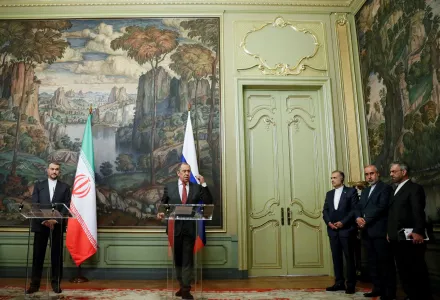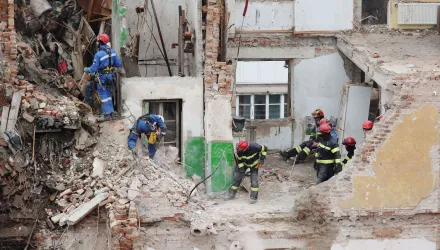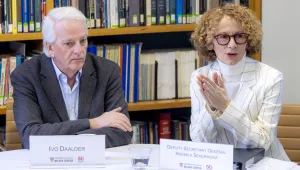
Overview
The policy brief explores the unprecedented level of cooperation between Moscow and Tehran that has emerged since the 2022 war in Ukraine, and unpacks the new security challenges this poses to the West. Their deepening military partnership risks prolonging the conflict in Ukraine, while Russia may be altering the balance of power in the Middle East by providing new military assistance to Iran, supporting Tehran's nuclear ambitions, and stoking escalation in Syria. Moscow and Tehran have also ramped up joint attempts to weaken the West by bypassing sanctions and attracting other countries to their vision of de-dollarization and a multipolar world order.
The rise of anti-Western hardliners driving Russian and Iranian foreign policy means that this cooperation could intensify further over the coming period. The policy brief argues that Europe and the United States should deploy both calibrated pressure and diplomacy to slow down the damage to Western interests, notably by:
- Enforcing smarter restrictive measures and export controls against third parties transferring drone technology and parts to Iran and Russia; retaining national level drone and missile sanctions on Iran following the expiration of UN sanctions due in October; and bolstering intelligence gathering and exposure of weapons transfers to provoke debate inside Iran.
- Simultaneously, using current de-escalatory momentum between Iran and both the West and GCC countries to advance hard-nosed diplomacy with Tehran. Europe and the United States should put forward a competitive economic offer with the aim of putting the brakes on Iranian military support to Russia in Ukraine, capping Iran's nuclear activities, and halting attacks against the West in the Middle East. The West should seek to take advantage of lingering doubts in Tehran over how far Eastern powers can meet its economic needs, and leverage its ability to provide Iran with immediate economic breathing room using the ideas outlined in the policy brief.
Despite the challenges associated with this approach, European governments should see limiting the military partnership between Iran and Russia as a strategic priority.
Geranmayeh, Ellie and Nicole Grajewski. "Alone Together: How the War in Ukraine Shapes the Russian-Iranian Relationship." European Council on Foreign Relations, Policy Brief, September 6, 2023.
The full text of this publication is available via European Council on Foreign Relations.





